As Kristin and I progress through The L Word‘s first season for our podcast “To L and Back,” we find ourselves often coming up against things that are a bit puzzling in the cool clear light of 2019. Despite providing groundbreaking representation of a certain population of lesbians,The L Word was also consistently clumsy in its handling of race, bisexuality and trans identities. Is Alice’s brief Season One boyfriend, Lisa the Lesbian-Identified Man, among these miscalculated characters? At the time, Lisa seemed, well, funny! Lol, a cis man acting like a stereotypical lesbian! It feels… less funny now.
Opinions on Lisa tend to run the gamut, and are all resonant in their own way. A trans man commented on a “To L and Back” Instagram post to say that he always felt uncomfortable about Lisa, that he’d struggled with a certain loss of lesbian community after transitioning and that “poking fun at a ‘lesbian-identified’ man — even one intended to be cis — really hits a raw nerve with that ‘loss.'” Drew, a trans woman writer for Autostraddle (who you’ll hear more from in this roundtable), tweeted last month, “Lisa is a great character handled really well. The other characters may be transphobic towards her but in this case the show is not!”
See — now that The L Word‘s audience is more well-versed in trans narratives and identities and queer spaces include more non-binary and other trans people within them, it’s hard not to wonder if Lisa falls under some part of that so-called trans “umbrella.” Kristin and I have talked about it a whole lot on the podcast but as cis people our perspectives are inherently limited. So I reached out to a bunch of writers to get their take on Lisa and I have four trans women and one non-binary person — Grace Lavery, Kat Callahan, Sadie Edwards, Drew Gregory and Phoenix Casino — with equally fascinating and very different takes to share.
I’d also like to inform you that Andrea Long Chu has not seenThe L Word, which you can take up with her on the platform of your choosing.
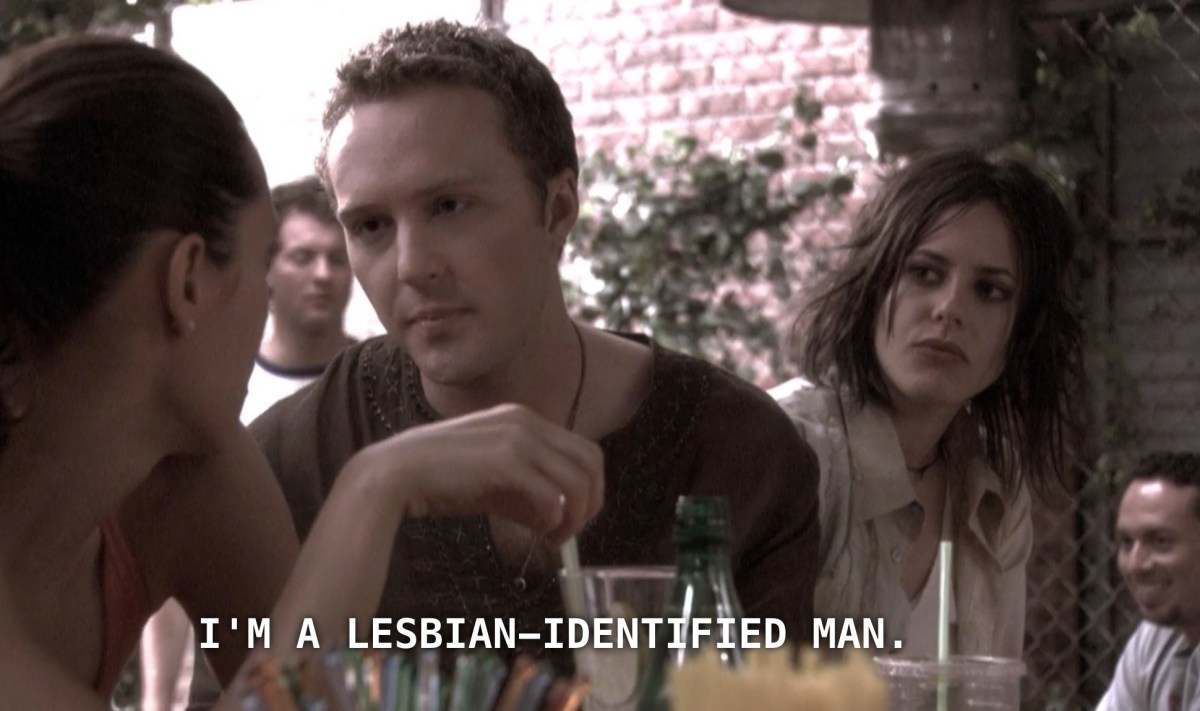
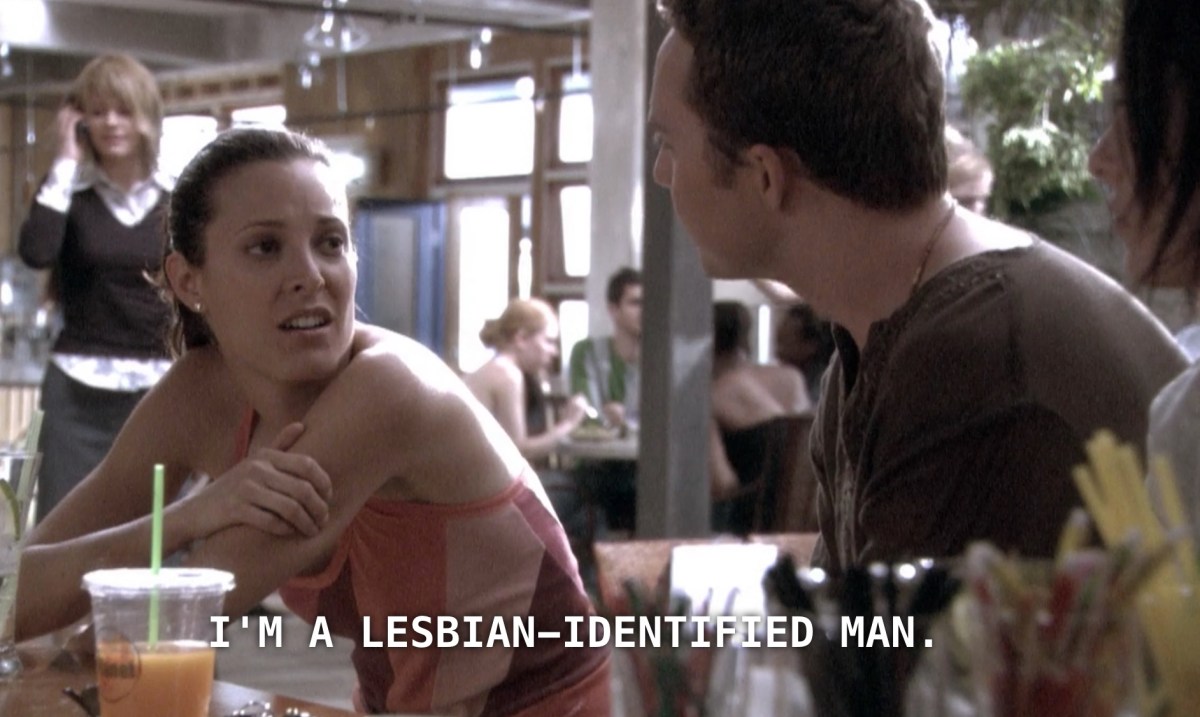
Grace Lavery
While Alice is learning to love and despise Lisa, the male lesbian, Jenny Schecter is enjoying one of her occasional holidays in genre fiction. One of The L Word’s two author surrogates, Jenny is the character charged with rotating the genre-nonconforming show (is it a dramedy? a soap? it’s not… softcore porn, is it?) into more conventionally recognizable territory. It is Jenny who will go on to catalyze turns into political thriller, showbiz drama, and murder mystery, but in “Losing It,” she drives over much more traditionally blokey terrain — the stoner road movie. High on mushrooms, Jenny recites poetry to two, as Wikipedia puts it, “disaffected youngsters”; the youths are about as diverted as the viewer by her strangely repetitive dramatic ode, in which she imagines sending her forlorn but (this turns out to be important) hunky husband various of her internal organs. Jenny’s encounter with the teens contrasts with Alice’s experience of Lisa. The former is working Kerouac genre-drag with every every last strand of her luscious black locks, eventually landing in front of a blue-and-pink-neon-signed diner that the camera captures with a wide angle lens — the effect is as pompous a presentation of “Americana” as anything David Lynch has shot. Alice, meanwhile, is gentle and curious, excited as she often is to experience new genres, new ways of being and representing, but always defensive too, never quite allowing anything to land. The high/low point of Alice’s style of genre play — in The L Word, which one might take as a perfect exemplar of the classical sense of “problematic,” the one is usually the other — will be her flirtation with the idea-word-name-person “Papi,” whose two syllables pop out of her mouth with a delightfully ice-cold smirk. Lisa’s no Papi, though; Lisa is a short-term detour on the path back to post-Dana derangement, Alice’s state of equilibrium. It’s honestly a little surprising their flirtation lasts as long as it does.
It’s that contempt, though, that leads me to think that Lisa’s transness needs to be thought quite differently to the transphobic panic we might expect — she is not punished for an excess of maleness, but a deficiency of it.
Is Lisa a trans woman? Or rather, given that the object travestied as “Lisa” never existed, is this a version of a trans woman as she might be seen by a superficially friendly but essentially pretty phobic cis woman like Alice or Ilene Chaiken? The case would be easy to make: the name; the “jealousy” of Tina’s pregnancy; the exasperating over-performance of lez cultural practices (processing; reiki); the preference for a strap-on over a flesh-dick, a preference that Alice finds contemptible. It’s that contempt, though, that leads me to think that Lisa’s transness needs to be thought quite differently to the transphobic panic we might expect — she is not punished for an excess of maleness, but a deficiency of it. Man up, Lisa! When Alice starts macking on some other straight dude rando in the following episode, she is especially keen that he is not smuggling a secret vagina — as though that were Lisa’s problem.
Which it almost is. Like her near-namesake Myles, Ilene Chaiken has chosen to spend time in a universe where all trans people belong to some species of trans man, and all transness is a more or less tortured negotiation with desirable masculinity. If that seems transphobic, it’s because it is. But, on the other hand, it is a very strange kind of transphobia, in that Chaiken has created the unrecognizable character type of the “male lesbian” in order to cover up the hole where trans dykes would be if The L Word looked anything like Angelena lesbianism; everyone who might be a trans woman is in fact a trans man.
Meanwhile, the closest analogues to “male lesbians” in the real world are the trans dudes who never wanted to achieve lesbian escape velocity. There are plenty, and one can just about see Alice getting pissed with them. Funnily enough, Lisa is given the stamp of approval by the character generally delegated to pass judgment on trans desire — Kit. If Lisa wants to surrender the privilege of white maleness, that’s fine with her! (Does Lisa want that? Unclear.) Later the show’s one regular trans guy Max, notoriously, is denied the same encouragement from Kit on the grounds of that old “butch flight” canard. And later still, Kit will feel up a drag queen, Sunset Boulevard, but of course it is only when Sunset de-frocks and comes out as “a heterosexual man who loves my gay and lesbian family,” that he is both finally absorbed into desirability and mocked for having dared to put on a dress.
For a show whose character system is depicted as a spider diagram of hot femme4femme fuck buddies, The L Word sure does have some ambivalent desire towards masculinity — by which I mean not the masculinity of the sylphlike bois like Shane and Papi, but that of the hot male beefcake that decorates so many shots in the first season. For whose benefit must we, viewers of The L Word, watch hunky Tim getting sweaty on his own, before receiving a night visit from (for some reason) Bette? Aren’t we just screaming at the screen: man up, Tim! Man up, Lisa! Man up, Shane! Etc.
It’s a little sad realizing I’ll never get to date Alice — she’s cute, and I think I’d entertain her for three episodes as well as anyone else could. (Me: 🌞Bette; 🌜Jodi; ↗️Shane.) I don’t feel rejected, though, and it’s impossible to get mad about it. It’s not a world that despises me, which after all many in the real world do, including plenty of cis lesbians. It’s a world where the idea of trans women has yet to be had. Unless… Jenny… what was that about cutting your organs off and mailing them to your ex? WAIT A MINUTE—— ✂️
 Grace Lavery is a writer, academic, and Instagram transsexual living in Berkeley, California. Her first book, QUAINT, EXQUISITE: VICTORIAN AESTHETICS AND THE IDEA OF JAPAN, was published this year by Princeton UP, and she has academic essays coming out in Critical Inquiry and Differences soon. She publishes a newsletter entitled THE STAGE MIRROR, which publishes a handful of short essays a week, and publishes a monthly column in Catapult magazine entitled LURID SPECULATIONS, on t4t sexuality and 90s movies. Follow her on twitter.
Grace Lavery is a writer, academic, and Instagram transsexual living in Berkeley, California. Her first book, QUAINT, EXQUISITE: VICTORIAN AESTHETICS AND THE IDEA OF JAPAN, was published this year by Princeton UP, and she has academic essays coming out in Critical Inquiry and Differences soon. She publishes a newsletter entitled THE STAGE MIRROR, which publishes a handful of short essays a week, and publishes a monthly column in Catapult magazine entitled LURID SPECULATIONS, on t4t sexuality and 90s movies. Follow her on twitter.
Phoenix Casino
(Note: I will be using he/him pronouns for Lisa because that’s the way he described himself for the entirety of his plot line.)
I’ve re-watched The L Word about every other year since it came into my life, which adds up to six times, the most recent watch ending about a week ago. I don’t return to this show because it’s good (it’s not), but because as a trans person of dyke adjacency, I can’t avoid it. Somewhere in the world, a lesbian or lesbian-adjacent person is re-watching The L Word and its unrelenting bizarre-ness. But the things that seemed bizarre in 2004 seem less so in 2019.
Lisa the lesbian man enters Alice’s love life with an identity that is not complicated or contradictory to him – he’s a man. He’s also a lesbian. Lesbian man is both his gender and his sexual identity. He knows who he wants to date and how he likes to fuck, and he pursues that with no ambiguity or shame in the language he uses, particularly with Alice. Despite Lisa’s excellent communication skills, Alice becomes increasingly frustrated and increasingly transphobic as if she had been deceived, a poisonous idea that crosses into our reality, where the murder of trans women is legally defensible if the assailant feels that they had been wronged. Their story culminates in a hard-to-watch sex scene, which was hardly consensual if at all.
What do we in want from and for Lisa in 2019? Justice for him, or peace of mind for us? The desire to reach back in time and pull him into our present is natural because we — especially trans people — want to see the character restored in dignity, thus preserving our own dignity. But how has transphobia really changed between then and now?
Unless Lisa makes a special appearance in the reboot, he, like all characters, permanently lives in 2004 LA while the rest of us get to move forward in our lives, returning to the series to be entertained by the talking, laughing, loving, breathing etc. And intentionally or not, it makes sense for us to compare their time to our own. In our present, we’re experiencing greater representation and greater discussion around queer and trans identities than ever before. In their present, trans people barely exist, and when they do, the writing is clumsy; the trans characters are reduced to bungled parodies.
What do we in want from and for Lisa in 2019? Justice for him, or peace of mind for us? The desire to reach back in time and pull him into our present is natural because we — especially trans people — want to see the character restored in dignity, thus preserving our own dignity. But how has transphobia really changed between then and now? It’s alive and well in incidents of interpersonal violence and experiences with insidious systemic violence. We don’t have much more in the present to give to him, even if we name him as trans. If Lisa is trans in our present, it’s impossible to guess what Ilene Chaiken was thinking when writing the character; what’s clear is that he is not well-received by Alice and her friends (except Shane, who in general is a great ally to trans and gender non-conforming people). Lisa’s presence as a gag — a zany hook-up story to be to laughed over at The Planet.
The L Word is a cultural touchstone, not because of its quality but because of its position as singular look into lesbians’ lives for better or worse. But that’s not true anymore. Since then, media has slowly brought lesbians, trans people, and gender non-conforming people into the fold – Orange is the New Black, Sense8, Black Mirror’s San Junipero, Pose, Disobedience, The Favourite, Steven Universe, Penny Dreadful, and that’s just the beginning. Perhaps you have seen Carol? It’s not perfect representation, but perfection is impossible, especially since preferred language shifts frequently and moves with great speed through the internet. TLW is no longer the monolith of representation.
I watch and re-watch this show because there’s always more to think about as I grow into my own queerness and transness and see new things: Shane is a great friend, Kit has affinity for gender non-conforming people, Bette is hot but has terrible taste in art, Jenny was probably in a trauma blackout for the entirety of season six, and maybe Lisa is trans. Or maybe he’s not! Time won’t tell because we may never see him again — all that’s left to be seen is how we as an audience register the differences and similarities between their universe and ours as the re-watches keep coming.
 Phoenix Casino is a labor organizer, aspiring lawyer, and host of the queer theory podcast You Saved My Life.They laugh at their own jokes so that you don’t have to.
Phoenix Casino is a labor organizer, aspiring lawyer, and host of the queer theory podcast You Saved My Life.They laugh at their own jokes so that you don’t have to.
podcast
twitter
Sadie Edwards
It’s been a long time since I’ve watched The L Word. It’s hard looking back and not thinking about where I was back then. There’s a lot to be disappointed with in revisiting the show, but Lisa the Male Lesbian was a pleasantly relatable surprise.
I liked Lisa’s intro. It wasn’t the worst bit the The L Word had to offer. Shoutout to Max’s beard. At first, the scene comes off as throw away joke with maybe just a tinge of trans. I had read speculation of his (Lisa uses he/his pronouns throughout) gender identity and I couldn’t help but see Lisa through a trans lens. Revisiting this circa-2004 softcore lesploitation classic I was prepared for the cringe, but reading Lisa as trans femme adds a level of intrigue and authenticity to the character that I am pretty certain (very certain) wasn’t the writers intent. Having worked with TV writers I can only assume the pitch went, “You know what’d be funny? A really earnest ‘male lesbian’ [yuks intensify]” and then took it to its logical conclusion. Make a few jokes at his expense, and toss it.
But this is The L Word so things have to get weird. They try to expand on what it is that makes Lisa a lesbian and every time it’s to play up Lisa’s lesbian tendencies. It’s these forced moments where it fails the hardest. It’s odd to think a show about lesbians, staring lesbians, and created by a lesbian would get lesbian so wrong and so reductive. Odd that is if you actually hadn’t seen the rest of the series. But I digress.
I think my main issue with reading this as a trans character is that it feels very tragic for Lisa and little too close to home for me. I personally would never have called myself a “male lesbian” but his experience is not all that far from my own.
Episode 108. This is where things really turn inward for me, It goes from awkward joke to real life. The whole crew is kicking it at a sexy lesbian yacht party (we’ve all been there amiright?) and of course Lisa is there, being a lesbian and all. Things get softcore steamy between him and Alice in a scene that feels straight up ripped out of my life. Alice’s hand trails toward Lisa’s boxer briefs; he stops her and reaches for a dildo. Alice does not take this well. She’s come for the D. I can think of soo many times that I’ve offered my own, we’ll say, unconventional method of sex only to be shut down because I’ve “got the real thing.” The face Lisa makes when this happens is one I am way too familiar with.
I think my main issue with reading this as a trans character is that it feels very tragic for Lisa and little too close to home for me. I personally would never have called myself a “male lesbian” but his experience is not all that far from my own. When I was 21, my girlfriend and I spent a few months watching The L Word. At that point I had come out, we had been having what I’d considered lesbian sex. And then, one day — not all that long after we had watched Lisa’s arc — she told me she wanted to sleep with women. She ended things because she wanted something less complicated. Check out the end of Episode 110 for a scary accurate dramatization. That hurt, and I couldn’t help but see myself in Lisa when Alice broke it off.
All that said, let’s look at the question of the day “Is Lisa trans?” In his arc, Lisa starts as a joke and somehow stumbles into a complex and real character that could definitely be seen as a trans narrative as seen through the lens of a cis person. On top of that the character was given deference and inclusion and a general sense of understanding that trans people never got on the show. Somehow they stumbled into a very real story of an egg trying to hatch. So, sure, he’s trans but it’s absolutely not intentional.
 Sadie Edwards is a wanderer and performance Artist transplanted to the PNW. She spent 5 years working on film and television shoots as a Camera Assistant but now she lives the dream of spending most of her time playing videogames for a paycheck. You can follow her on twitter at sadie_shescrazy.
Sadie Edwards is a wanderer and performance Artist transplanted to the PNW. She spent 5 years working on film and television shoots as a Camera Assistant but now she lives the dream of spending most of her time playing videogames for a paycheck. You can follow her on twitter at sadie_shescrazy.
Drew Gregory
I love Lisa.
Like many lesbians before me, cis and trans, I distinctly remember The L Word DVDs at Blockbuster. I remember looking at them from across the room. I remember sneaking over to them and reading the back covers. I remember feeling like a pervert, a boy ostensibly, far too intrigued by these lesbians on TV. I remember Jennifer Beals.
I felt this same forbidden energy towards the show until I started transitioning. And then I was informed there was a new reason it wasn’t for me: transphobia. But I couldn’t resist. I was finally allowed to watch the show and nothing was going to stop me.
I braced myself for the usual bad representation. A shocking reveal that a woman has a penis. Or jokes about a place being overrun with trannies. Or, I don’t know, maybe even a serial killer. (Plot twist: Buffalo Bill killed Jenny!!) Instead, in the first half of the first season, Lisa is introduced. Met with confusion by baby gay Dana and total acceptance by pro dyke Shane, Lisa identifies as a male lesbian. This is how I secretly felt long before I knew to use the word trans, so I immediately read Lisa as a trans woman. Four episodes into The L Word, and trans women were already showing up! It felt to me like confirmation that we’ve always been here. Our presence in the lesbian community may be misunderstood (and sometimes downright rejected), but it’s so undeniable that we get one of the first subplots on the biggest lesbian show of all time. It felt great.
As far as I’m concerned, The L Word‘s best cases of trans and genderqueer representation are when they don’t know that’s the story they’re telling. There’s a dehumanizing heaviness cis creators often bring to trans stories.
Alice was my biggest crush on my first watch so it was especially sweet that she and Lisa were immediately smitten. I quickly recognized and laughed at her surprise when Lisa genuinely listens to what she has to say. (Cis men really do leave the bar low for us closeted trans women!) And it was so nice how easily the women accept Lisa into their circles. Only Dana is rude to her and Dana doesn’t even believe in bisexuality.
It’s erotic when Lisa is doing Reiki on Alice and it’s realistic (and sad) when Alice refuses to have sex the way Lisa feels most comfortable. It’s not that Lisa is treated perfectly. It’s just the way she’s treated feels very authentic to the characters. She and Alice eventually break up, not explicitly because Lisa is a male lesbian, but because she is overcompensating so much that she becomes too gay!
As far as I’m concerned, The L Word‘s best cases of trans and genderqueer representation are when they don’t know that’s the story they’re telling. There’s a dehumanizing heaviness cis creators often bring to trans stories. And that’s how it felt with Max. “What’s the worst thing that can happen to this person? Fascinating! Let’s do that!” But with Lisa and Ivan Aycock (the drag king and probable trans man who dates Kit), they’re just treated as people. Curiosities, certainly, but people nonetheless. There wasn’t the pressure of “telling a trans story.” Lisa is just Lisa.
I really hope there are some out trans women on the reboot. But I also worry that it will be handled with that heaviness I have no interest in seeing. My favorite thing about the Lisa storyline is how casual it is. Because, yes, I’m trans, but I still talk. I still laugh. And love. And breathe. I fight. I fuck. I cry. I drink. Well, you get the idea. That’s all I want to see on screen.
 Drew is an LA-based writer, filmmaker, and theatremaker. She is currently working on a short film about Gordo from Lizzie McGuire’s transition (it’s canon) and a million other projects. She also runs social media for I Heart Female Directors. Find her on Twitter and Instagram @draw_gregory.
Drew is an LA-based writer, filmmaker, and theatremaker. She is currently working on a short film about Gordo from Lizzie McGuire’s transition (it’s canon) and a million other projects. She also runs social media for I Heart Female Directors. Find her on Twitter and Instagram @draw_gregory.
Kat Callahan
While it has been years since I last watched The L Word, it was still quite a few years after the series originally aired. I found it moderately enjoyable; however, I didn’t really consider it reflective of my life or the queer community of which I was a part. Was it progress to see a show all about queer women? Sure. However, like many mass media portrayals, it suffered from representing a cast which was only vaguely diversified.
The vast majority of characters hewed closely to traditional beauty standards and shapes, class awareness was generally lacking, racial and ethnic makeup was considerable progress for the time, yet has not kept up with our 2019 norms. Portrayals of the “U-haul” or “chart” now seem hokey stereotypes leading to a slightly awkward “har har har.”
And then there was “Lisa” the “lesbian-identified male.”
I found Lisa’s character sketching to be mildly uncomfortable then, and I believe it to be even more problematic now. The idea of the “male lesbian” isn’t new. I’ve discussed the concept before in a book review of a 1980s psychological text about the topic. My ultimate conclusion was that the men described, which Lisa would seem to fit into, are cisgender men rebelling against gender norms, not women in any definition, based on their own descriptions of themselves as, well, men. When people articulate a gender identity, you should believe them, right? That includes cis people, too. Obviously.
Despite Lisa’s name, there appears to be absolutely no evidence in the episodes in which he appears that he (and I am using that pronoun very specifically) actually identifies as a woman, let alone as female. His discomfort seems less to do with his physicality (a lack of sex dysphoria) or his gender expression/gender presentation as it affects how people gender him (a lack of gender dysphoria) than it does with his sexual preferences. “Preferences” here is not an old throwback to what we call orientation now. Rather, I actually mean preferred sexual practices. His refusal (or maybe even inability) to perform in a typical heterosexual male gender role is the crux of the humor.
His character isn’t a problematic portrayal of a transgender person. I’d say if anything it’s femmephobic, because his gender expression (but not presentation) in terms of his sexual practices are presented as hilarious.
Is Lisa a lesbian? No, I think not. Lisa is not a woman of any sort. He is not a trans woman, and so does not fall into even the widened definition we have of lesbian in 2019 that could be summed up perhaps as “woman identified people with sexual and/or romantic interest in other woman identified people.” Is Lisa non-binary? Maybe. But we have far too little information to go on, and frankly, so does the Lisa himself. Perhaps it is possible in 2019 that Lisa would have the vocabulary to identify as genderqueer, but this is speculation not backed up by the source material.
Well, is Lisa as a character concept transphobic? No. Why would he be? His character isn’t a problematic portrayal of a transgender person. I’d say if anything it’s femmephobic, because his gender expression (but not presentation) in terms of his sexual practices are presented as hilarious. The message is that straight men can’t be femme. Not transphobic, but hardly feminist or progressive. If the writers were attempting to be progressive with the character’s inclusion, they failed to communicate this. Swing and a miss.
 Kat Callahan is a longtime journalist, civics teacher, and union organiser. Previously political reporter at The Daily Texan, LGBT Editor at Jezebel, and Weekend Editor/Correspondent, Asia at Jalopnik, she has also contributed pieces to other publications and textbooks. Her academic interests include historical Japanese radical ultranationalism and internationalisation/
Kat Callahan is a longtime journalist, civics teacher, and union organiser. Previously political reporter at The Daily Texan, LGBT Editor at Jezebel, and Weekend Editor/Correspondent, Asia at Jalopnik, she has also contributed pieces to other publications and textbooks. Her academic interests include historical Japanese radical ultranationalism and internationalisation/


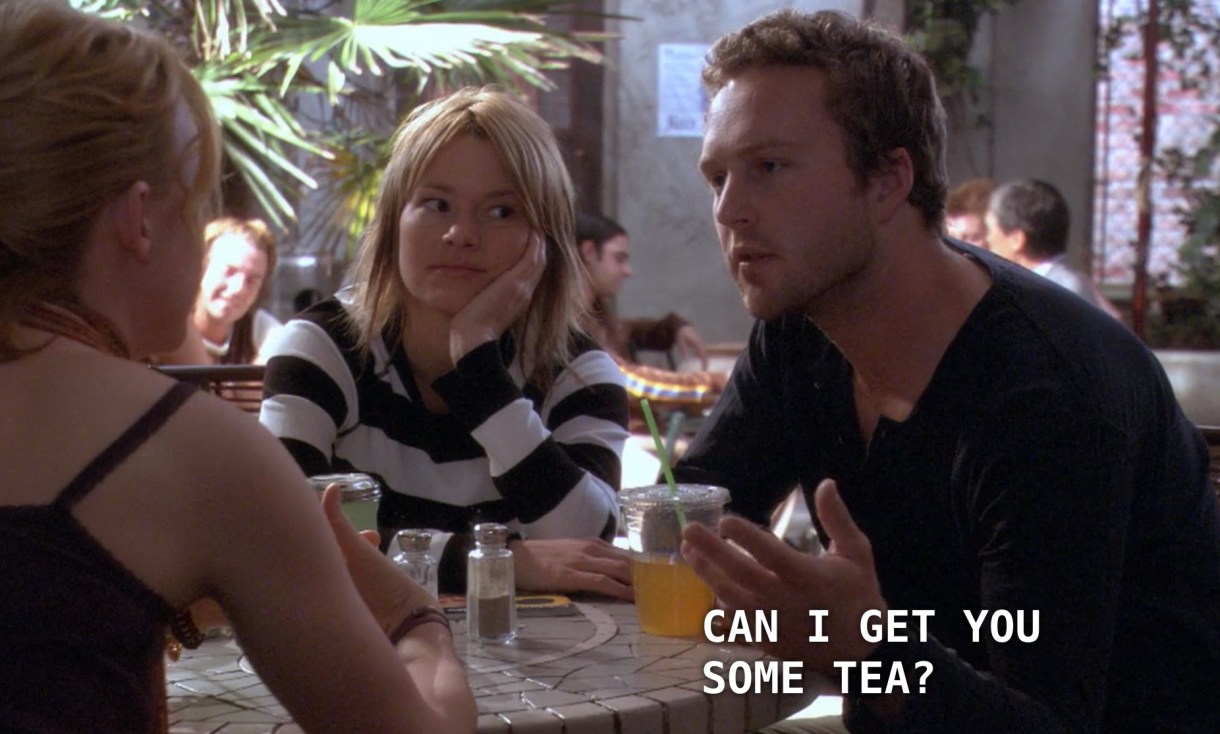
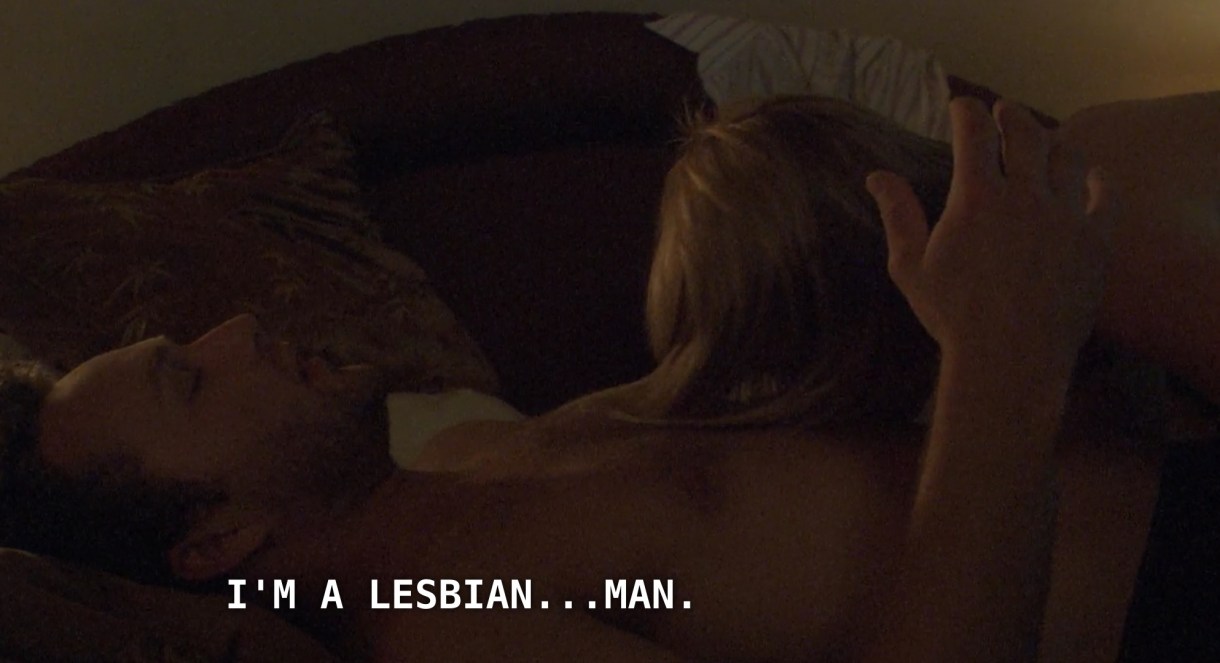

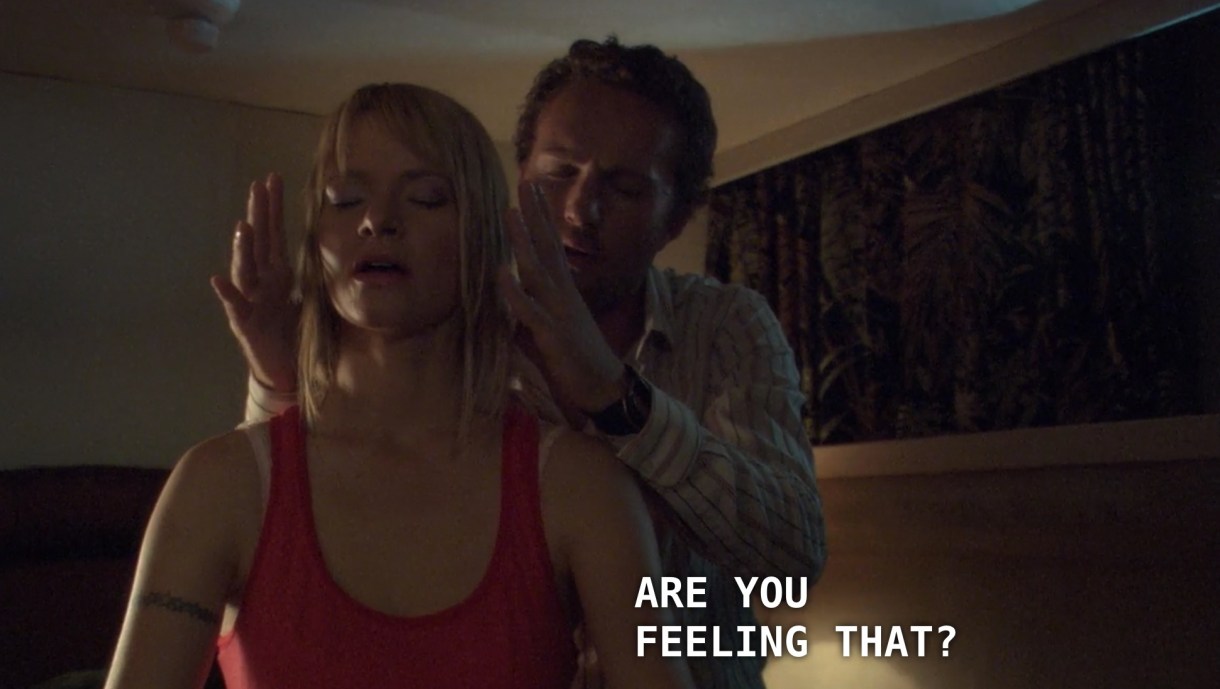

GRACE OMG your words are perfect
*runs off to read the others view*
Phœnix i loved everything you had to say
Sadie that was beautiful.
Drew your insight into this made me see the show in a new light! ❤️
Kat you made me consider a whole new aspect to the character thank you 🙏🏻
This is brilliant. I loved reading this so much.
I remember reading somewhere* that Lisa was based off a real person that was a friend of a friend of one of the writers, and the writer was upset that they ended up turning him into a joke. Which always made the whole arc a little sadder to me.
* I can’t find the article I read it in, so hopefully I am not misremembering!
i think you read it here, lol
THAT BEING SAID at this point we’ve heard a few different stories about it from people who were in the writers room so we’re not sure how it transpired specifically, which’s why i didn’t include that tidbit in the intro
That what I heard too, when I was searching more about Lisa about a decade ago. Lisa apparently was a roadie for bands at lilith fair.
I mean, that’s pretty lesbian
I am so glad this exists!!!!!
I loved reading this. Thank you all.
I don’t think Lisa’s character was so out-of-place and unintelligible for 2004, as many of the writers here suggest. Back then, queerness that didn’t fit into the “LGBT” acronym was often given the label “pomosexual” (a term that’s apparently been around since 1997). I think this is what Lisa was coded as (or at least that’s how I read it in 2012-13 when I watched the series), even if the writers were not aware of this term.
Lisa is a stand-in for all queer identities that didn’t find their place among the more commonly-known ones, the ones rejected even by other queer. And, as expected from a highly biphobic and transphobic series, it does what it did to these other 2 identities: rejected its validity, and subsequently crossed its boundaries as if it’s funny (I’m referring to the Lisa/Alice sex scene here and the “Max pregnancy” thing).
yup i have a book called “pomosexuals” edited by carol queen from 1997
I have that book, too, and was still reading it in 2004 lacking better terminology and as an English major with an interest in lit crit.
I am certain, because it still stands out in my memory, there is an essay about/by a “lesbian-identified man” and his two lesbian partners in that very anthology. I wonder where that person is now…and whether Lisa was at all influenced by Pomosexuals.
So funny. I had to dig deep in the brain files to even remember what “pomo” stood for but yes! Do people still talk about postmodernism? The cultural idea seems even more relevant today.
Yup, I never heard “pomosexual” in NZ, but the whole thing about queers outside the, er, mainstream understanding of “LGBT” wasn’t unreal to us at all.
Given the way the character was portrayed initially in the show, I thought he was supposed to be one of those straight guys who went around proclaiming creepily, “I’m a lesbian in a man’s body!”
However, that sex scene with Alice was just horrific, and to be honest, turned me off her as a character for the rest of the show (not that I “hated” her character as such, but I wasn’t very invested in her after that). It was just so unnecessarily cruel.
As Drew says, the show inadvertently told the truth with the disdain about how Lisa was treated. Regarding Kat’s observation, no, my feeling was the show was not trying to be “progressive” – they were trying to make some kind of witty observation about how some people identify, and they failed to make it witty, or make any cogent *true* observation. “Look at this weirdo dude” was the main feeling I got at the time.
Thankfully, yes, we have more nuanced ways of describing the different permutations than we had available then. But unlike Alice, there were plenty then who would have been understanding of his identification as something other than a cis het dude if it were presented in the way that the show only really achieved during the sex scene.
Maybe it was supposed to be a comment on Alice’s conservatism and stereotyping, but it didn’t seem that way at the time.
Ooh I loved this! What a great discussion. Thank you!
Really, really enjoyed this!
Wow this was the weirdest timing – I was literally wondering what the autostraddle stance was about Lisa yesterday. I met a guy who identified as male lesbian last year when i was living in Beijing and my (cishet) friend asked me to go with her on a date with him so I could be their translator (next level third wheel lmao) and honestly didn’t know what to think about it; my only frame of reference was Lisa. So valuable to read this discussion! Thank you!
haha this subplot needs to be on the l word reboot
Truly!
Hmmm this is interesting. I’ve never really talked with people before about this character, and I had no idea other trans folks had so many different readings of Lisa.
I started watching the L Word very early in my transition back in 2013. At the time, it seemed obvious to me that the character was a parody of a queer trans woman. The joke seemed to be that someone could look so much like a guy but say he was “Lisa” and that he was a lesbian. So the target seemed to be trans women early in their transition or trans women who don’t dress sufficiently femme (or maybe just trans women, in general. Having Lisa dress masculine just built in some plausible deniability).
So as you could imagine, I took this to be super fucked-up. The key point is that I didn’t see Lisa as an attempt at realism. I saw him as very extreme (intentional) caricature. Like watch that show again and imagine that Lisa is any typical trans woman in your community. . .a person who looks and identifies as most trans woman do. . .but “Lisa” is the caricature that the creators’ of the L Word have made of such a woman. As such, the character’s clothes and hair, his identification as male, and almost everything else about him reads as an extreme attack, a hateful, ignorant parody.
This was basically why I stopped watching the L Word after just a few episodes. I didn’t want to watch a show that held women like me in such contempt and thought I was a guy and dedicated a whole prolonged subplot to its misrepresentation and bigotry. But like I said, I only ever talked about this with one or two people. So today I was in for quite a shock. I had no idea that there were people who read Lisa as a trans guy or as a semi-closeted trans woman or thought he was a positive representation. It sorta makes me want to go back and rewatch those parts of the show. Like I sorta had the most paranoid possible interpretation of Lisa, but maybe he wasn’t actually meant that way? Maybe he was supposed to be realistic and in today’s terms would be some stripe of non-binary/gender non-conforming?
Honestly this makes me feel better about Autostraddle, too. I always thought it was a little sketch that this website was so enthusiastic about a show that said trans women were 100% male. But now I’m realizing that’s not what the show said or at least, it’s not clear that’s what the show said. It’s very much up for interpretation and different trans people have different takeaways.
This was so thoughtful and lovely. I would really love to see a similar discussion on Ivan Aycock, since he is also so short-lived on the show.
Ivan </3
I would too!
yes!! a writer from ‘the l word’ actually told us that she’d wanted Ivan’s character to be explicitly non-binary, but got pushback
I saw season one right after it came out and it too resonated with me at the time. I would agree Lisa is trans woman, but argue Lisa is probably nb or genderqueer trans woman the way some things were worded talked about. But I’ve seen recently many trans women not happy with the character.
I really appreciate reading all of the different perspectives here, both in the main article and in the comments. I didn’t pay much attention to Lisa back when I first watched the show as a baby queer, and my first reaction on being reminded of this storyline was “yikes”, so it’s interesting to hear that some people found it affirming in some ways. I’m glad to know that some little bit of positive trans representation, however unintentional, may have been eked out of this unholy mess of a show. Here’s hoping the reboot does far better in this regard, though I won’t be holding my breath.
I’m really loving all of these perspectives. When I first watched The L Word (back in 2010, when I was a freshman in college + had newfound access to my own Netflix account) I thought Lisa was sort of a dumb joke that the writers took too far, but I never really read into him as non-binary/a trans woman/confused about gender at all. But, at the time, I didn’t have any close friendships with people who were trans (or, more accurately, I didn’t know any of my friends were trans).
Since then, I’ve come to terms with my own gender identity + a few of my friends have come out as trans women. Upon rewatches of the show + revaluations of Lisa’s character, I can see my friends in Lisa a bit. Certainly not saying this is true of all trans women, but the trans women I know did portray themselves as being more sensitive/didn’t exhibit toxic traits I typically associated with men (spoiler alert: because they weren’t men!)
Knowing what I do now, it is easier to read Lisa as a trans woman who doesn’t know how to express that accurately.
However, I do think that Kat’s analysis that Lisa isn’t trans + Sadie’s analysis that Lisa is “unintentionally” trans have a lot of merit.
I think the beauty in this — and perhaps a cause of confusion — is that I find myself trying to use my 2019 knowledge/terminology to discuss a character that was introduced in 2004. Overall, I think all theories and discussions surrounding Lisa/the character’s identity are valid because the show 1) Didn’t give us a lot of material to work with and 2) Probably isn’t going to reintroduce the character at all in the reboot.
At any rate, I really enjoyed reading everyone’s thoughts and I’m happy I have the insight/life experiences to view Lisa through a lens other than “lol, this dude calls himself a lesbian.”
I love “queer in a way I don’t have other words for”! Finding the right words for myself has definitely been a big part of my journey – and if I didn’t have the internet, I would FOR SURE still be there.
Oh, this is exactly what I wanted to read when I first watched The L Word and wasn’t sure how to feel about this character! Thank you.
Never having watched The L Word, I can’t really comment on the actuality of the character, but from what I’ve read here, the whole thing feels very, very screwy to me (as a lesbian trans girl). I had an extremely visceral reaction to reading this piece, because the character seems to hit so many of the beats of the TERF tropes and caricatures that seem to infect the discourse — just the phrase “lesbian-identified man” is a phrase straight out of the TERF playbook, and functions as a way to deny our existence and deny our womanhood.
Of course, I could probably be totally wrong about the character himself, but my god… I can’t help but be extremely suspicious of the whole thing, especially given the fact that the only trans folks in a show supposedly devoted to lesbian women were in fact men. It’s like, “hey! Only AFAB folks can be lesbians, the rest of y’all are just a punchline.”
Yes! I wasn’t going to comment b/c I haven’t watched the L Word but I’ll nest one here.
Recently when I complained about men popping up on my dating app someone asked “what if they’re a lesbian identified man?” I just said that isn’t an actual identity that seems possible given the definition of a lesbian which can include NB and trans people but doesn’t include CIS-men.
IDK I’m not going to watch this. It’s sounds like a trash fire. The only positive thought I have is that maybe the writers were trying to do a trans story without knowing how and without current vocabulary but that’s no excuse for making a joke out of it.
You are correct to see TERF tropes in the presentation of Lisa. ‘Male identified lesbian’ is 2nd wave feminists language response to gender queer theory in 2004. I have can cis lesbians self describe as ‘Male identified female’in a 2006 documentary.
I kind of agree with Kat’s way of looking at it the most. Otherwise it would just seem like so much wasted, mean-spirited energy and the extremely jaded part of me doesn’t need to bed fed like that.
I’m sure the upcoming reboot will be an eye-opening narrative, whether for good or for ill. But I sincerely want to believe it could be good.
Thank you for this discussion, It’s been really great to hear all of your interpretations of Lisa. When I first watched The L’word, it was in secret at 15, I really had no idea about gender identity or sexuality, including my own. Id watch the show secretly at my older friends house, we’d smoke pot and watch episodes together. I think Lisa was treated as a joke with the crew I watched it with, I really had no idea about anything.
When I re watched the show I didn’t see her/him as a joke, but I was confused on the character’s identity looking through the lens of 2019. Also I’m a cis, white lesbian, so I try and check my privilege with things that I’m not experienced with. I genuinely do want to learn and become a good ally.
It was really interesting to see some positive receptions to Lisa, as well as the mixed reactions. I honestly loved reading everything you all said.
I hope there are more conversations in the future, I’d love to hear what you all think of Ivan’s character.
Also here’s hoping there are some positive trans representations in the reboot, though I won’t hold my breath, but it would be nice to see!! it’s the least they could do, for what they did with Max.
I haven’t re-watched the episode (and honestly, barely remember the character) but based on what everyone’s said here, it sounds like Lisa could be a crossdreamer. Jack Molay has a terrific blog about crossdreaming that has a ton of great posts, but basically, he defines crossdreaming as being aroused by the idea of being the “other sex” (relative to your assigned sex at birth). And, he’s cited studies and surveys that show that *both* cis and trans people crossdream.
So, while I think seeing Lisa as trans femme is a totally valid reading, I’d also like to put it out there that it is possible for Lisa to be male (in terms of gender identity) AND also identify as a lesbian, if his fantasies involve him having lesbian sex, as a lesbian (rather than a straight dude wanting to get in on the action). Or, as Phoenix said above, “Lisa the lesbian man enters Alice’s love life with an identity that is not complicated or contradictory to him – he’s a man. He’s also a lesbian. Lesbian man is both his gender and his sexual identity. He knows who he wants to date and how he likes to fuck, and he pursues that with no ambiguity or shame in the language he uses, particularly with Alice.” I cheered when I read that sentence!
There’s a 2015 article by Janet Hardy (of The Ethical Slut fame) in Fair Observer that gives a great introduction to the unfortunately-named “girlfag” and “guydyke” identities, in which male lesbian is given as a synonym for guydyke. I love what she had to say about objectifying gay men/lesbians: “Girlfags and guydykes are sometimes accused of objectifying gay male/lesbian sexuality — to which I answer, resoundingly, “Duh”: Sexual fantasy is inherently objectifying in that it tends to focus on a projected image of the fantasy object rather than on the entire, complex human being. But a well-behaved girlfag or guydyke, like a well-behaved person of any gender or orientation, does not project their fantasies onto non-consenting partners.”
TL;DR: I think Lisa can be a “male lesbian” without being a trans woman. Gender and sexuality can intersect or diverge in so many complicated ways, especially here on the outskirts of the queer umbrella. Thanks for coming to my TED Talk :)
(Also, I didn’t include direct links to either source because I think that’s preventing this comment from being posted, but hopefully there’s enough to google if you’re interested in learning more!)
To be honest, if someone’s a crossdreamer, I generally tend to assume they’re, at the very least, not entirely cis. However, I will admit that I am probably quite biased as someone who’s discovery of the “crossdreamer” identity kickstarted her coming to terms with her own trans womanhood.
Glad to see all these different opinions on Lisa. When I first watched Lisa’s episode, it made me uncomfortable because, while it didn’t feel explicitly transphobic, it felt like they were parodying and making jokes about a real thing. I just wasn’t sure if it was me or not. Like the post contributers mentioned, if Lisa was made more modernly, maybe they would have a better vocabulary to explain who they were and how they felt.
I agree with Drew about Ivan. I went into the show hearing that it could be very transphobic, but I was, then, confused by Ivan because his story seemed like a good, genuine trans story (despite the transphobic push back he gets from some of the other characters). I would be very interested if Ivan or Lisa came back in the reboot to fix the mistakes of the past writers, but I seriously doubt they will.
I am a long-time reader of Autostraddle and have finally signed up to comment on this great article!
Anyway, I’d like to speak as an older trans woman, who is probably around the same age as the women in that Youtube video of “Hayley Kiyoko Surprises the Old Lesbians.” [*extreme gay excitement*!!!]
It’s important to analyze Lisa from the perspective of the people who wrote her, and I agree with a lot of what’s been said so far about them and their motivations.
But for me personally, there is a personal and historical dimension to this that just barely peeps through the surface (for example, “queer in a way I don’t have other words for”) in all of the insightful things people have said so far. And I feel that this dimension is largely overwhelmed by people’s recognition of Lisa’s real shortcomings as a character, and by some pretty deep—and wise—questioning of the intentions of the people who created “him.”
So here’s what I would like to say:
It was damned hard to figure out who I was in the ’60s!
Or in the ’70s!
Or in the ’80s…
I only finally came out to myself in 2008. At the age of 55!
Because I didn’t have the language, or the concepts. (And also because I was in denial—but that’s another story.)
My long road to coming out really only got started in the ’80s, with the realization that I was a lesbian.
I still had no idea that I was actually a woman, even though I cross-dressed in private, and even though I only really felt at home among women-oriented communities—especially ones that included other lesbians.
I was actually pretty close to being a separatist, but even that somehow never brought the question of my gender all the way to the surface.
And it was really confusing trying to date some of the women I knew, since it seemed “obvious” that I should be more butch than at least some of the lesbians I went out with. (I dress soft butch, but am a total femme, as if things weren’t confusing enough.) And for some of these women, it was “obvious” that I was a man, so for them it was, like, “What’s up with that? Why would I go out with ‘him’?!?”
In the ’90s, I heard about… the concept of the male lesbian… and at first I thought… that might be me… and then I thought… but I’m not a man… but I still couldn’t… put it together…
And then, in 2008, it finally did come together. And not too long after that, I watched as much as I could stand of The L Word—with the deep attraction/repulsion/addiction/revulsion dynamic that so many of us have experienced. (By the way, I AM JENNY! [Although I’m not bi, and I never really got past Season 1, so I’m actually not even qualified to know what I’m saying by that!] But: I AM JENNY!)
And I saw Lisa. And I didn’t really like him. But at the same time, and in the context of that specific historical moment, I thought that Lisa could have been me. In 1985, or in 1993, or even—perhaps—in 2004.
On the same page with seeing myself in the Lisa character.
I appreciate all the different takes on Lisa. I am a male passing non binary AFAB person who uses he/him pronouns, and I talk about lesbian cultural things enough that someone recently asked if I identified as a “male lesbian” (they didn’t realize I was trans). So I read Lisa through that lens, where maybe in a different world he could look like a man and be ok with he/him pronouns, while simultaneously not identifying as a man in any strict sense. But, I will say that’s certainly not what the writers intended in 2004!
& Grace’s casual drag of Eileen Myles made me laugh out loud
As a 47 year old trans lesbian, ‘Lisa’ was and is a mistaken proxy for a lost generation of trans women resulting from 2nd wave feminist transphobia. All of the above interpretations view ‘Lisa’ in hindsight through a queer trans theory lense.
As a closeted trans lesbian, who had lived through Janice Raymond’s ‘moral genocide’, the expulsion at Michfest in 1991, and watched trans women invisibility during 1990’s LGBT culture- Lisa was me. She representated my banishment from loving respectful lesbian romance.
Lisa, the character, was a joke based on word of mouth of the real pain resulting from trans exclusionary lesbians. I am not sure how the characters presentation as anything other than overt transmisogyny.
Conceptualizing ‘Lisa’ from a queer lit theory misses the pain of the living trans lesbians during the 1970’s through today. The oppression is and was real.